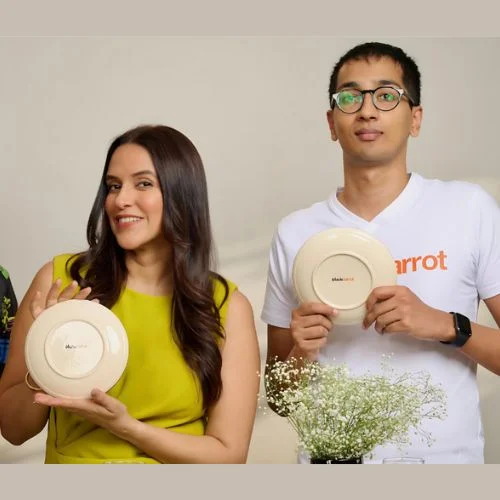Wat-a-Burger was developed by Farman Beig and Rajat Jaiswal in 2016 to provide Indian consumers a taste of fusion burgers in a market dominated by international and desi flavours from US fast food franchises McDonald’s and Burger King.
Wat-a-Burger has grown from its initial location in Noida Sector 18 to more than 60 locations in 16 cities in less than four years. Delhi, Bengaluru, Hyderabad, Ghaziabad, Vadodara, Ahmedabad, Guwahati, Lucknow, Chandigarh, Gorakhpur, Faridabad, Ranchi, Jhansi, and Srinagar are among the cities included.
When Rajat Jaiswal opened the first Wat-a-Burger location in Noida in 2015, he brought the fight to the doorsteps of a McDonald’s, where his team made a daring and appealing offer to burger fans: Try our burgers, and if you don’t like them, we’ll refund your money.
The throng flooded in sampled their Indianized burgers and kept coming back for more. Nobody ever demanded a refund.
“India has a population of 1.3 billion people, so even if we cater to 1% of that, that’s 13 million people,” Farman explains. “After all, the burger is a ‘people’s choice’ item.” We chose burgers since there aren’t many people who don’t enjoy them.”
Every day, the fast-food company serves around 80,000 people on average. In FY20, the company had a revenue of Rs 39 crore.
The paneer chili burger and desi street-style burger in the vegetarian area, as well as the peri-peri chicken burger, chicken makhani burger, and crispy double chicken burger on the non-vegetarian menu, are the chain’s best-selling items, according to the company.
In 2015, Rajat and his boyhood buddy Farman Beig founded Wat-a-Burger with a capital of Rs 25 lakh. The two formed Super Fry India Pvt Ltd and opened its first shop in Noida with only six staff.
The first year’s revenue was Rs 75 lakh (2015-16), which was reached after only seven months in business. The corporation proceeded to expand year after year, both in terms of revenue and the number of locations.
Franchises were provided, and the stores quickly spread to neighboring cities.
“Rajat and I had always spoken about business concepts, and one day we whittled it down to burgers, but we didn’t want to be just another burger joint in town.” We chose to offer fusion burgers after doing some study,” he explains. According to Farman, their burgers’ distinctive desi blend provided them an edge in the market and delivered a unique experience.
The firm made revenue of Rs 1 crore in its first financial year, 2017, and progressively increased to Rs 29.55 crore by 2019. The firm, however, suffered a lag as a result of the COVID-19 epidemic, and sales fell to Rs 13 crore in the previous fiscal year.















